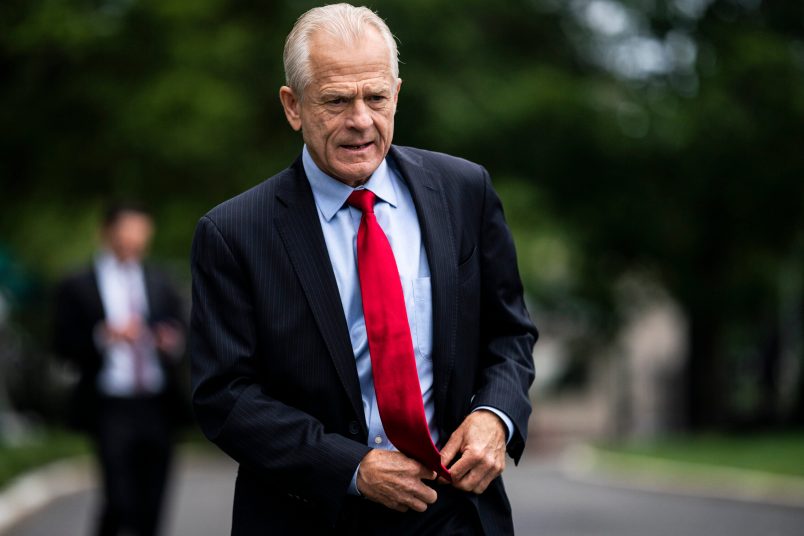Former Trump White House adviser Peter Navarro announced this weekend that he received a federal criminal grand jury subpoena as part of D.C. federal prosecutors’ investigation into the Capitol insurrection — the first such subpoena for an administration official to be made public.
Navarro disclosed the existence of the grand jury in a draft lawsuit that he circulated over the weekend.
Apart from the fact of receiving the subpoena, little is clear from Navarro’s description of the demand in the lawsuit, which he filed pro se and which is replete with bizarre claims about the federal criminal probe being the “fruit of the poisonous tree” that is the separate, congressional Jan. 6 investigation.
Navarro is not an attorney.
But the news does suggest that D.C. federal prosecutors are examining the activities of White House officials in relation to the insurrection attempt.
“If this is the first grand jury subpoena to a former White House official in this investigation, I’d say it’s an escalation,” Harry Sandick, a former federal prosecutor now in private practice, told TPM.
The D.C. U.S. Attorney’s Office declined to comment to TPM. Navarro did not return a request for comment.
There’s more unknown than known about the subpoena, which, Navarro said, mentions that “communications with Trump” are part of what’s being sought. Navarro is purportedly commanded to appear before the grand jury on Thursday, having received it on May 26 after two FBI agents “banged loudly” on his door with subpoena in hand.
The move comes after six years of investigations into former President Trump and his inner circle that ended with the indictments and convictions of a select few of his associates — including former campaign chairman Paul Manafort and adviser Roger Stone — but failed to touch the former president himself.
Laurence Tribe, a Harvard Law professor of constitutional law, called it a “strong sign [that] Garland’s DOJ is zeroing in on Trump.”
“This isn’t about Navarro’s contempt of Congress,” he added.
Glenn Kirschner, a former federal prosecutor, wrote that the subpoena’s apparent request for “communications with Trump” suggest that the former president may himself fall under the scope of the DOJ’s investigation.
“This reinforces that the DOJ is using the grand jury to directly investigate the crimes of Donald Trump,” he wrote on Twitter.
Questions continue to linger about whether Attorney General Merrick Garland has the appetite for a full-fledged investigation of the former president’s leadership role in trying to subvert the results of the 2020 election and in egging on of rioters during the Capitol insurrection.
Navarro himself played a key role in liaising between Trump and activists seeking to overturn the election results in late 2020 and early 2021.
He reportedly led a Jan. 2 phone call between Trump, his attorneys, and state lawmakers in which the White House tried to persuade the legislators to back their bid to block Biden from taking power.
Navarro dubbed his own plan the “Green Bay Sweep,” which would have seen the Electoral College vote count on Jan. 6 delayed as long as possible. During the delay, state legislatures in battleground states would decertify Biden’s win, reducing the totals and thereby allowing a Trump victory.
It was an absurd plan, but one that was at the center of congressional investigators’ crosshairs when the House committee issued Navarro a subpoena in February. He refused to comply with that, leading the House to refer him for prosecution over criminal contempt of Congress.
Sandick, the former federal prosecutor, told TPM that Navarro’s role could end up being significant.
“He’s potentially a conduit for people who were planning the activities into the White House and for the White House to send messages to people planning those activities,” Sandick remarked.






